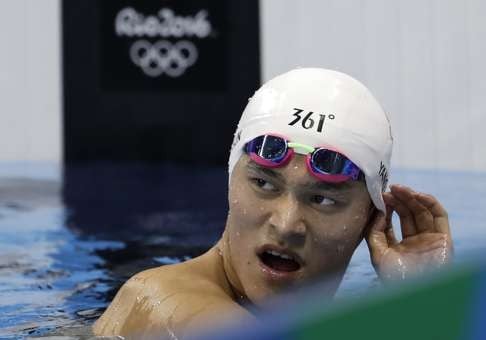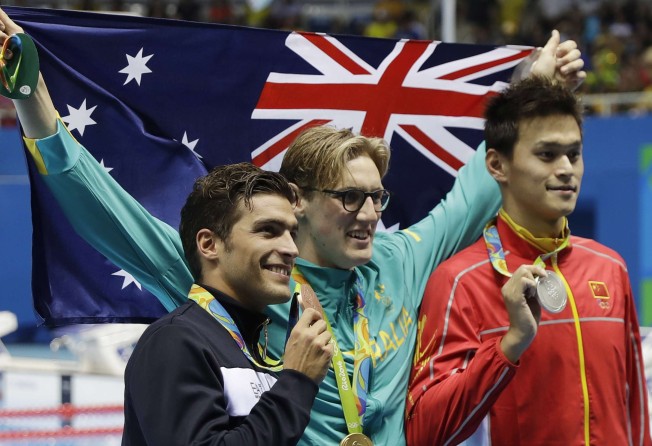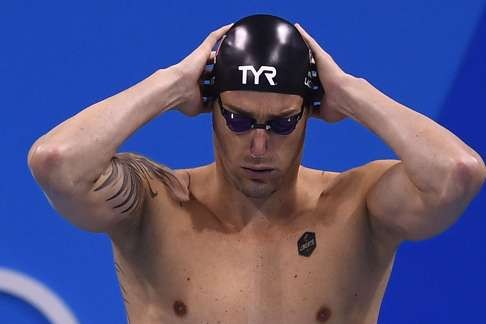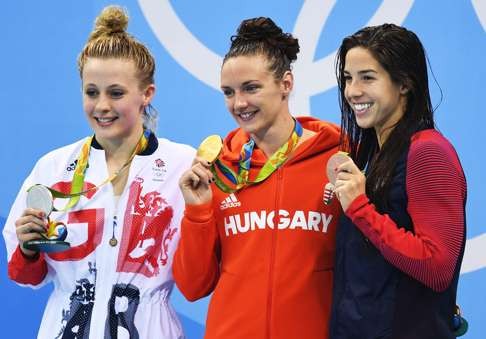
Suspicious minds are hovering ominously over swimming events at Rio de Janeiro Olympic Games
After endless doping-scandals have rocked the pool, competitors and officials are no longer keeping their innuendos underwater

It has to be one of the most spontaneously joyous moments in Olympic history. When 17-year-old Mexican swimmer Felipe Munoz won gold in the 200m breaststroke at the 1968 Games in Mexico City, it was a stunning win on so many levels.
Ten days into the Games, the host country had yet to win a gold and few gave the teenage Munoz much of chance. A true homeboy, he grew up only a few blocks away from the swimming complex, the fact that he was even in an Olympic final was remarkable in itself.
However, when he closed from fourth to first over the last 50 meters the euphoria was impossible to contain and even the medal ceremony had to be delayed when the crowd mobbed Munoz and put him on their shoulders for a prolonged victory lap.
At that moment, the true greatness of the Olympics was framed for all to see.

It’s impossible not to yearn for moments like these. If it happened in 2016 there would be an immediate air of suspicion over an unknown winner. The sad reality is we now live in an era of disbelief and nowhere has that been more prevalent than in the Olympic pool during the first week of the Rio Games.
Despite some fantastic performances, there have been more questions asked than answered, and at this stage, that may be the only thing that feels natural. While the water in the Olympic diving pool mysteriously turned green, the colour of the water in the swimming pool was, well, whatever colour innuendo is. Purple? “Yang pisses purple,” said French swimmer Camille LaCourt about China’s Sun Yang, who had just won gold in the 200 metre freestyle.
LaCourt was not alone in accusing Yang, who tested positive for a stimulant in 2014 and was banned for three months, of being a drug cheat. Yang’s rival, Australia’s Mack Horton who beat Yang in the 400 metre freestyle, was adamant that he was clean and Yang was not. Naturally this spat transcended swimming with Chinese authorities demanding Australia and Horton apologise, while the Global Times, owned by the national mouthpiece the People’s Daily, claimed Horton’s behaviour is hardly a surprise because he comes from a country basically founded by genetic jailbirds.

Civility and sportsmanship is in short supply on either side of the doping divide now and it was laid bare for all to see in the pool in Rio. In some respects, it might seem refreshing that competitors and commentators no longer feel the need to hold back, particularly with social media a viral epidemic.
But while “secrets” are exposed by the minute, truth may be the ultimate casualty of our information overload. Russian swimmers were greeted with some boos when they appeared poolside for events, particularly in lieu of the massive doping scandal that has shut down much of their other Olympic teams.
WATCH: golden moments on Day 1 at the Rio Olympics
However, the remarkable Hungarian swimmer Katinka Hosszu has easily attracted the lion’s share of attention and not all of it is good. Having won three gold medals in convincing fashion, the “Iron Lady” has been absolutely dominating with one announcer claiming that Hosszu’s intimidatingly sculpted physique has her competitors beaten before they get in the pool. Hosszu is also in the process of suing Swimming World magazine for slander over a piece written last year entitled “Are Katinka Hosszu’s performances being aided?”

Of course, Hosszu has never failed a test, but in this day and age that means nothing. One thing is certain though, the faster she swims the greater the suspicions grow. Fair or not, it seems that the modern calculus of swimming doping suspicions grows exponentially when athletes from an Eastern bloc country, and China as well, start winning golds.
The fresh legacy of the Russian doping scandal has done little to assuage that logic either, particularly when someone from a landlocked nation like Hungary is routinely destroying records. Country’s like Australia, gifted with bounteous natural swimming resources, and the US, similarly blessed with more top notch swimming facilities than any other country, are usually the one’s pointing the pious finger.
WATCH: golden moments on Day 7 at the Rio Olympics
Their athletes and officials have repeatedly claimed in Rio that any of their success is a victory for clean competitors. And if that is true then more power to them.
But for now, I am going to extend my level of disbelief just a bit more, and one of the things I don’t believe is that we will ever again see an Olympic swimming moment as fresh and innocent as Felipe Munoz in 1968. Today, the more information we have, the less we believe.